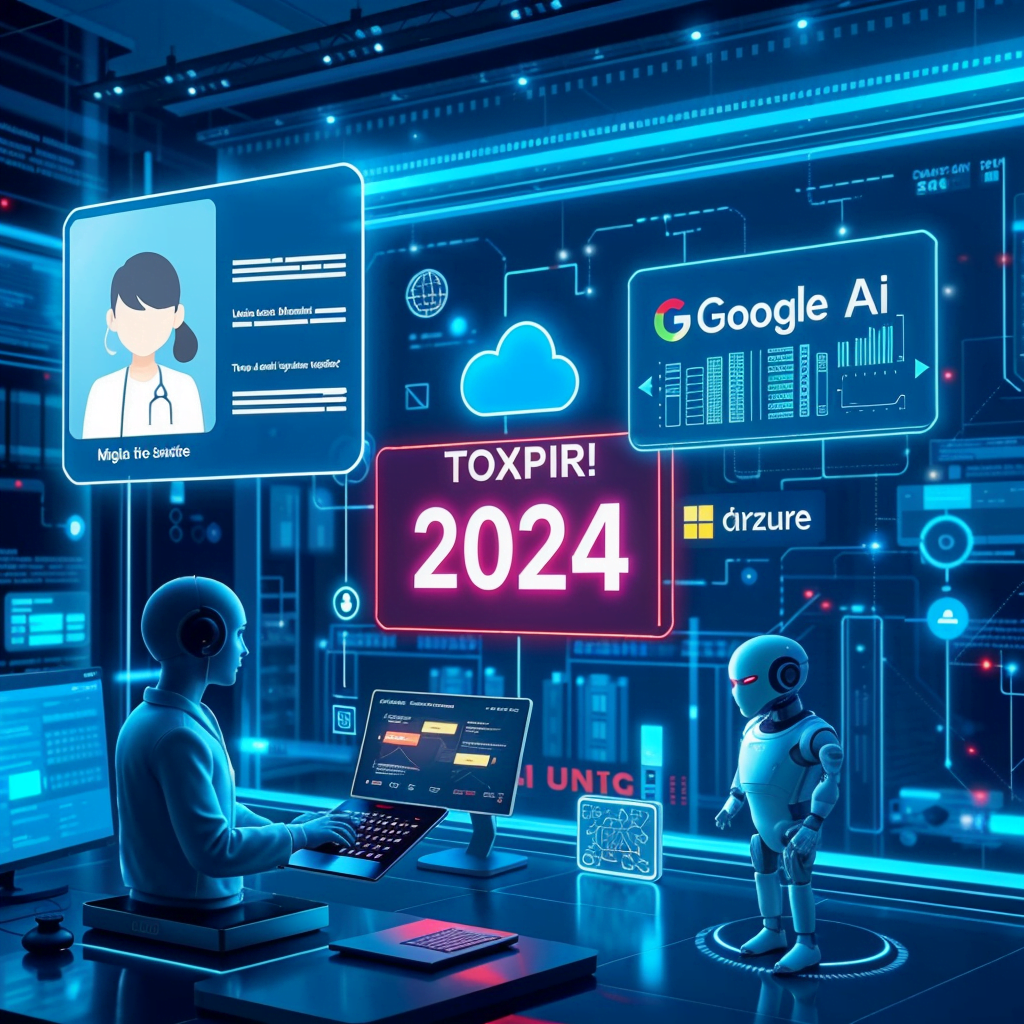
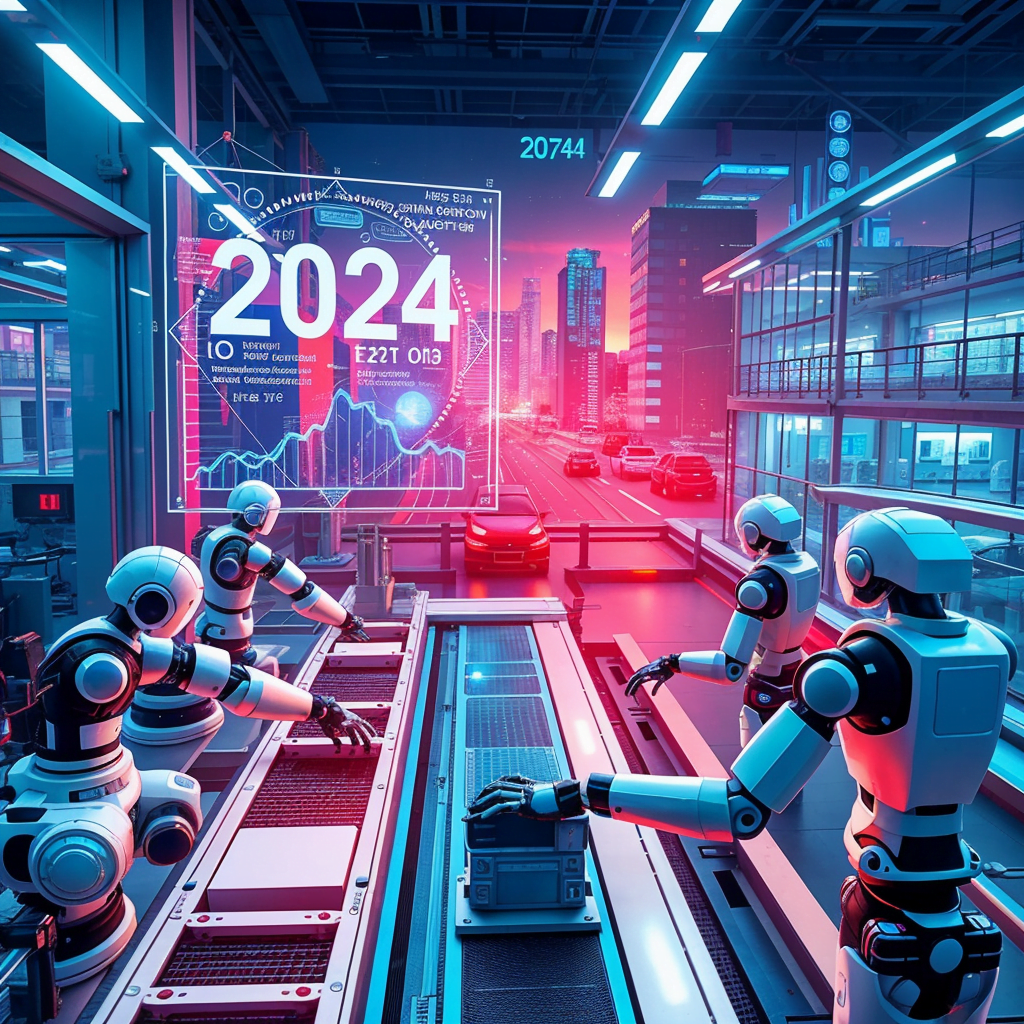
Artificial Intelligence (AI) has transformed from a futuristic concept into a critical driver of innovation across various industries. In 2024, Generative AI and Applied AI are at the forefront of this transformation, revolutionizing how businesses operate and make decisions. These technologies are shaping industries like healthcare, finance, and manufacturing, providing unprecedented automation and insights.
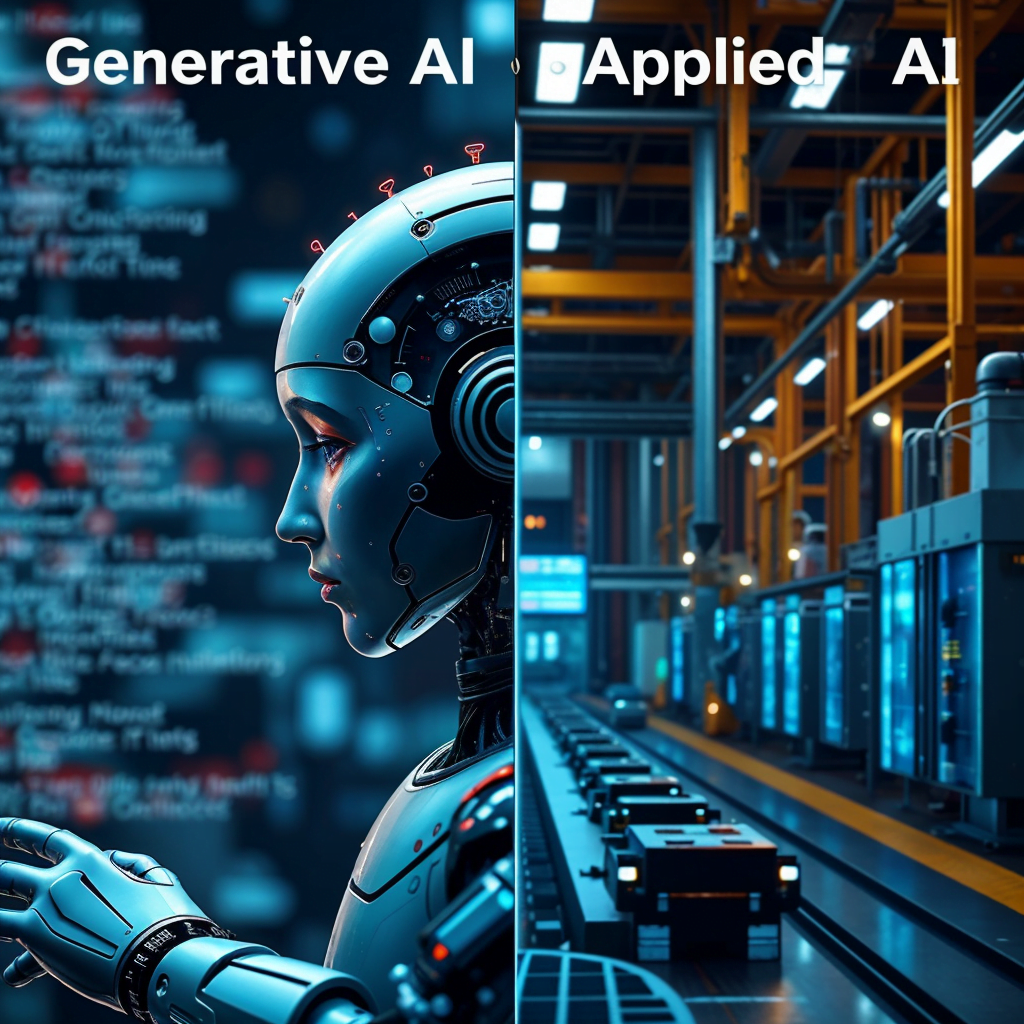
1. Understanding Generative AI and Applied AI
Generative AI refers to AI that creates new content from existing data, such as text, images, or even videos. This type of AI generates outputs based on patterns and models from the data it has been trained on. For instance, ChatGPT creates human-like conversations, and image-generation AI tools can create artwork from text prompts.
On the other hand, Applied AI focuses on using machine learning models for solving specific real-world problems. It involves the practical implementation of AI to optimize tasks such as automation, decision-making, and predictive analysis. Businesses are leveraging Applied AI to improve operational efficiency, enhance customer experiences, and drive innovation in product development.
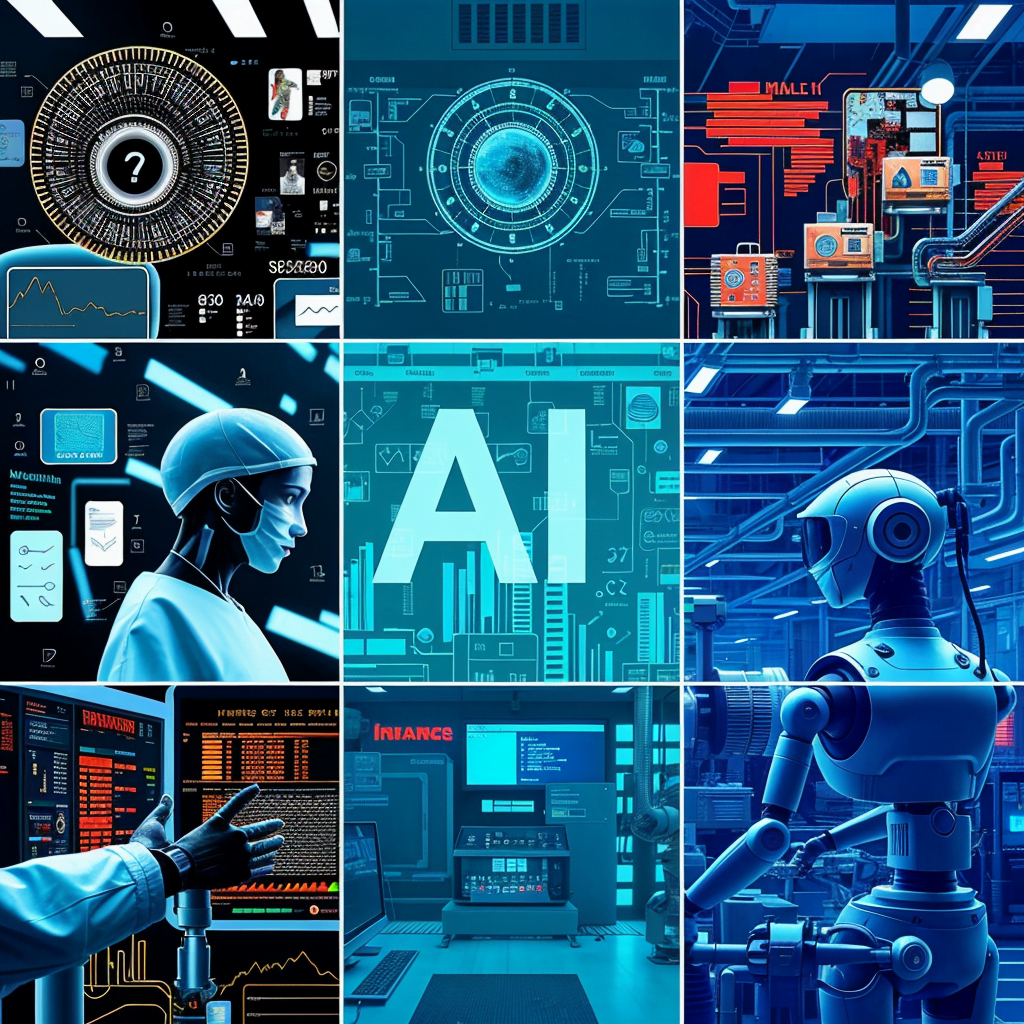
2. Applications of AI in Key Industries
Healthcare
AI’s potential in healthcare is transformative. Generative AI assists in creating models for personalized treatments and drug discovery, while Applied AI helps predict patient outcomes through real-time analytics. AI-powered diagnostic tools can analyze medical images and identify diseases more quickly and accurately than traditional methods, improving patient care and reducing human error.
Finance
The finance sector has adopted AI for tasks such as automating risk management, fraud detection, and financial forecasting. AI models can process massive amounts of financial data in real time, making it easier for institutions to make informed decisions. Automated trading systems are also increasingly relying on AI to execute trades faster and more efficiently.
Manufacturing
In manufacturing, Applied AI powers predictive maintenance systems that help companies avoid costly downtime by anticipating machinery failures. Generative AI can create design prototypes, streamline production processes, and enhance supply chain management. The ability to automate repetitive tasks and analyze production data significantly improves productivity and reduces waste.

3. Ethical Considerations in AI Adoption
While AI presents numerous benefits, it also brings forward key ethical challenges:
-
Data Privacy: AI systems often require vast amounts of data, raising concerns about user privacy. Striking a balance between data-driven insights and privacy is crucial.
-
Bias in AI: AI models may reflect biases in the data they are trained on, leading to unfair outcomes, especially in hiring, law enforcement, and financial lending.
-
Job Displacement: As AI automates more tasks, some industries are experiencing job displacement. Preparing the workforce for AI-driven roles and reskilling employees is essential.
Governments and organizations are working on frameworks and regulations to ensure AI’s ethical use, addressing privacy, fairness, and transparency (Exploding Topics).

4. Top AI Tools to Watch in 2024
The competitive AI landscape has brought several tools to the forefront, each contributing to the rapid adoption of AI across industries:
-
ChatGPT: This AI-powered conversational tool is ideal for automating customer service and content generation, helping businesses save time while improving customer engagement.
-
Google Cloud AI: Provides predictive analytics and advanced machine learning models that help businesses make data-driven decisions and automate processes.
-
Microsoft Azure AI: Offers comprehensive AI services for integrating machine learning models into business operations, from automation to decision-making.
These tools allow businesses to seamlessly integrate AI into their processes, offering solutions that enhance efficiency and innovation (Simplilearn.com).
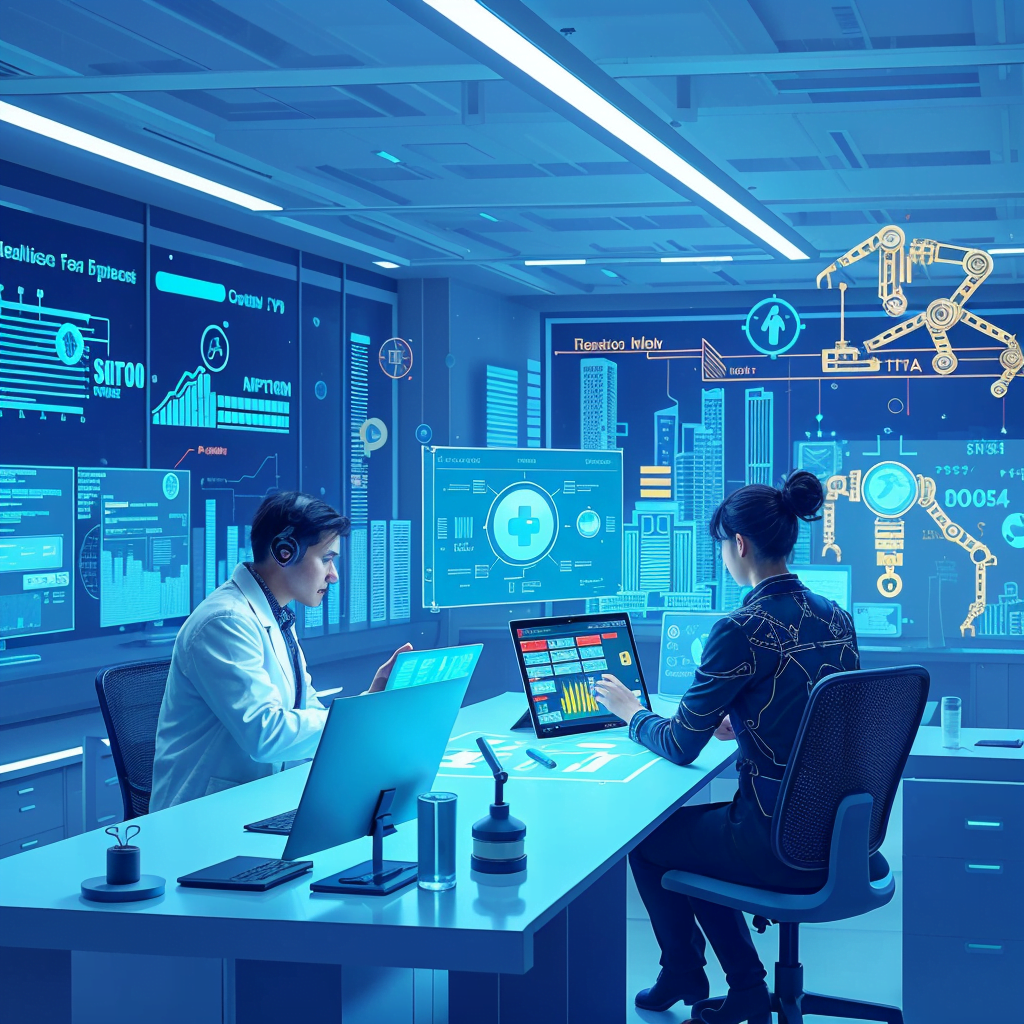
5. AI’s Impact on the Job Market
The rise of Generative AI and Applied AI is not only impacting industries but also reshaping the job market. Demand for AI professionals—such as data scientists, machine learning engineers, and AI ethicists—continues to grow. According to industry reports, jobs related to AI will see a significant increase in 2024, especially in sectors like healthcare, finance, and robotics.
Key Skills in Demand:
- Expertise in AI programming languages (Python, R).
- Proficiency in machine learning frameworks (TensorFlow, PyTorch).
- Knowledge of AI ethics and governance frameworks.
AI’s transformative impact on the job market highlights the importance of upskilling and reskilling to stay competitive in this fast-evolving space(McKinsey & Company).

6. Conclusion
As we move through 2024, Generative AI and Applied AI will continue to shape the future of industries by enhancing automation, decision-making, and innovation. The practical applications of these technologies offer businesses unmatched opportunities to streamline processes, improve efficiency, and drive growth. However, ethical considerations surrounding AI adoption, such as data privacy and job displacement, must be carefully managed.
To stay competitive in this AI-driven world, businesses and professionals need to keep pace with these advancements, embrace AI tools, and be prepared for the challenges and opportunities that lie ahead.
Ready to explore more about AI?
Subscribe to our blog for regular updates on AI trends and tools.
Stay ahead of the curve with insights on how AI is transforming industries across the globe.








